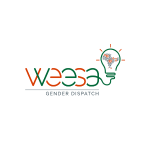

Women’s Economic Empowerment in South Asia (Hosted by SAR GIL)
Authors
Tags
- Gender-based Violence (17)
- Water (17)
- Measurement (10)
- Leadership (19)
- Afghanistan (4)
- Social Norms (8)
- Infographics (9)
- Migration (14)
- Transportation (12)
- Green Transition (7)
- Brief (2)
- Empowerment (4)
- Toolkits (13)
- Pakistan (22)
- Energy (26)
- Jobs (43)
- Infrastructure (20)
- Self-help Groups (12)
- Agriculture (12)
- Social Protection (12)
- Digital Inclusion (18)
- Nepal (12)
- Private Sector (26)
- Care Economy (10)
- Bhutan (2)
- Sri Lanka (6)
- Blogs & Articles (33)
- Podcast (33)
- Reports (69)
- India (30)
- Assets and Resources (14)
- Bangladesh (24)
- Maldives (1)
- Climate Change (32)
- Entrepreneurship (31)
- Video (2)
- Financial Inclusion (23)
- Policies and Legislation (14)
- Male Engagement (7)
- Gender Budgeting (7)
- Education and Skills (22)
Archives
- 2023 September (55)
- 2023 October (30)
- 2023 November (20)
- 2023 December (1)
- 2024 January (14)
- 2024 February (14)
- 2024 March (11)
- 2024 April (13)
- 2024 May (93)
- 2024 June (2)
- 2024 July (12)
- 2024 August (16)
- 2024 September (12)
- 2024 October (16)
- 2024 November (27)
- 2024 December (5)
- 2025 January (12)
- 2025 February (18)
- 2025 March (18)
- 2025 April (7)
- 2025 May (12)
- 2025 June (2)
Documents
Democratizing Innovation to Spur Growth (2025)
Innovation fuels economic growth by generating new businesses and jobs, but today's innovators mostly come from a narrow demographic, resulting in many “lost Einsteins” and “lost Marie Curies.” In this podcast,
The Global Gender Gap in Innovation and Creativity (2023)
This global analysis of international patent applications from 1999 to 2020 shows that women were involved in 23% of filings and only 13% of listed inventors. While the number of women
Presentations - Women's Voices and Choices: Exploring Agency, Decision-making, and the Influence of Women’s Groups
"Greater than the Sum of the Parts? Evidence on Mechanisms Operating in Women's Groups", by Seema Jayachandran – Professor of Economics and Public Affairs, Princeton University. "When Does Decision-Making
Sticky Floors and Glass Ceilings: Gender Wage Gap in Egypt (2022)
Women in the Middle East and North Africa (MENA) region have the lowest labor force participation globally. This study uses recent data from Egypt to compare wages of men and
Connecting Economies, Empowering Women (2024)
This report details findings from a multi-year program aimed at promoting regional growth and women’s economic empowerment through trade facilitation and connectivity in the Bangladesh, Bhutan, India, and Nepal (BBIN)
How safe transport could unlock women’s labour force participation in Pakistan
Could safe transport unlock women’s workforce participation in Pakistan? In a recent VoxDev podcast, SAR GIL’s Kate Vyborny discusses how limited mobility keeps women in urban Pakistan out of the labor market –
Raising Female Employment in South Asia, One Step at a Time (2025)
With more than 400 million working-age women outside the labor force, South Asia has a significant loss of economic output. This blog details insights from a 2024 conference focused on policies to boost women’s
The Productivity of Women- and Men-led Enterprises: In Search of a Fair Comparison (2025)
Comparisons between women- and men-led firms often assume they operate under similar conditions and constraints – a flawed assumption. This blog summarizes findings from a meta-frontier analysis that separates environmental constraints (factors
When Does Exporting Increase Women’s Employment in The Developing World? (2024)
This blog highlights key findings from a 2023 study that aims to uncover the intricate channels through which exports impact women’s employment. Analyzing data from nearly 30,000 manufacturing firms across 141 emerging economies,
Accelerating Impact: Unleashing the Power of Private Sector Partnerships for Gender Equality (2024)
This blog recaps insights on advancing gender equality in the private sector from panelists representing the public and private sectors, international organizations, and civil society at the 2024 World Bank Group-IMF